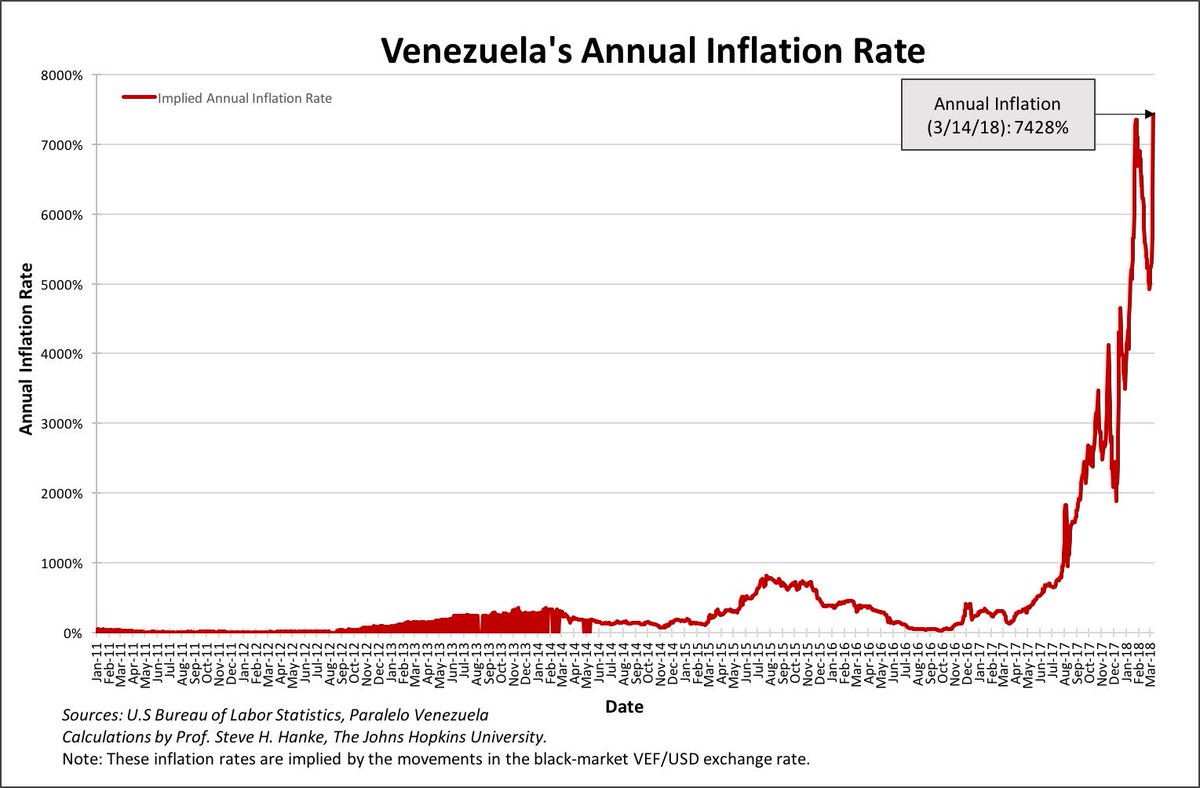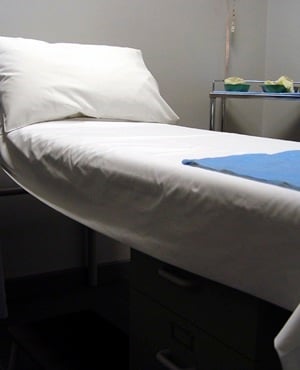CARACAS, Venezuela — Economic pledges may be par for the course in election campaigns, but in hyperinflationary Venezuela, the candidates' dueling promises are going further, with the incumbent vowing to lop a few zeros off the currency, while his main challenger calls for the adoption of the U.S. dollar.
President Nicolás Maduro late Thursday briefly outlined his monetary rescue plan. In a country where a dozen eggs can cost 250,000 bolivars ($5) amid
worsening inflation, he would chop three zeros off the currency — arguably bringing the price for those eggs down to 250.
“I ask you all for your prayers and support for the success of the monetary reconversion,” Maduro said in a televised event Thursday night.
The move came as Henri Falcon — a former governor running against Maduro in elections set for May — is proposing a far more radical fix. He wants to follow the path of countries such as Ecuador and Panama by dollarizing the Venezuelan economy. Doing so, he says, would prevent the printing of new bills — instantly constraining inflation.
Socialist Venezuela is going through a crisis that has left
people struggling to pay for food and find
medicines. Prices are being influenced by a black-market exchange rate that rises by the day and is currently five times the nearly inaccessible official rate.
Customers are standing in hours-long lines at banks to take out a daily limit, set so low that it barely covers the price of a cup of coffee. Larger transactions are done by bank card or transfer — although some vendors are charging double for electronic payments.
Maduro’s redenomination plan was met with serious skepticism by critics and analysts, who say that the impact on hyperinflation would be minimal — and that the plan would be confusing. By June 2, under Maduro’s plan, new bolivars with lower denominations would be circulated — but old ones, with denominations as high as 100,000, would remain valid. It would leave vendors charging two prices — one for old bills, the other for the redenominated bolivar.
Salaries too would be redenominated — so little would change in terms of buying power.
Economists say simply chopping zeros off the bolivar notes is unlikely to halt hyperinflation, since the government would still be printing reams of cash. In addition, the forces that have sent prices soaring, including food and medical scarcities, would remain in place. In fact, some Venezuelan business owners have already started eliminating three zeros from prices, simply because they're too long to fit in printed receipts.
“Taking out three zeros doesn’t in any way solve any of the causes of hyperinflation,” said Jean Paul Leidenz, senior economist at Caracas-based Ecoanalitica. “It’s just a cosmetic fix that won’t work.”
Maduro’s announcement is just his latest attempt to control runaway inflation: He has already launched a new cryptocurrency, the petro. An executive order by President Trump, however, has banned U.S. transactions in the petro, which U.S. officials have dubbed “a scam.” Few see the petro as a genuine solution — and Maduro’s new redenomination plan appears to be a tactical admission that the government is seeking another answer.
One thing is certain: The debate on how to halt hyperinflation is at the center of a presidential election that opposition leaders have called a farce and have boycotted. But Falcon — a former ally of leftist firebrand Hugo Chávez, who, before dying of cancer in 2013, handpicked Maduro — insists he has a chance.
The Yankee dollar, Falcon says, will help him win.
Falcon’s dollarization plan has appeared to hit a nerve with the country’s impoverished people.
In Latin America, Ecuador, Panama and El Salvador use the U.S. dollar — constraining budgetary spending and the setting of interest rates while providing monetary stability. Under Falcon’s plan, everything from salaries to taxes to food would be priced in dollars, and for a certain period, low-income earners would receive a $25 monthly subsidy through a so-called “solidarity card.”
“The prices of everything are calculated at the rate of the dollar here. The only thing that isn’t dollarized is salaries,” Falcon said in an interview with The Washington Post. “We want people to recover their purchasing power. We need them to.”
Falcon’s dollarization plan, analysts say, may present Venezuela with a bigger fix than Maduro’s redenomination.
“One is a superficial, makeup-like change, and the other is an actual restructuring aimed at stopping inflation,” Leidenz said.
That’s not to say dollarization doesn’t carry risks. It would bind the hands of the government on monetary policy, and would leave Venezuela’s economy under the influence of a currency whose value it cannot control.
“Dollarizing is like cutting out an important arm you need, an important tool, in exchange for stopping hyperinflation as fast as possible,” Leidenz said. “It’s a debate I wish was happening among academics, not through electoral propaganda.”











